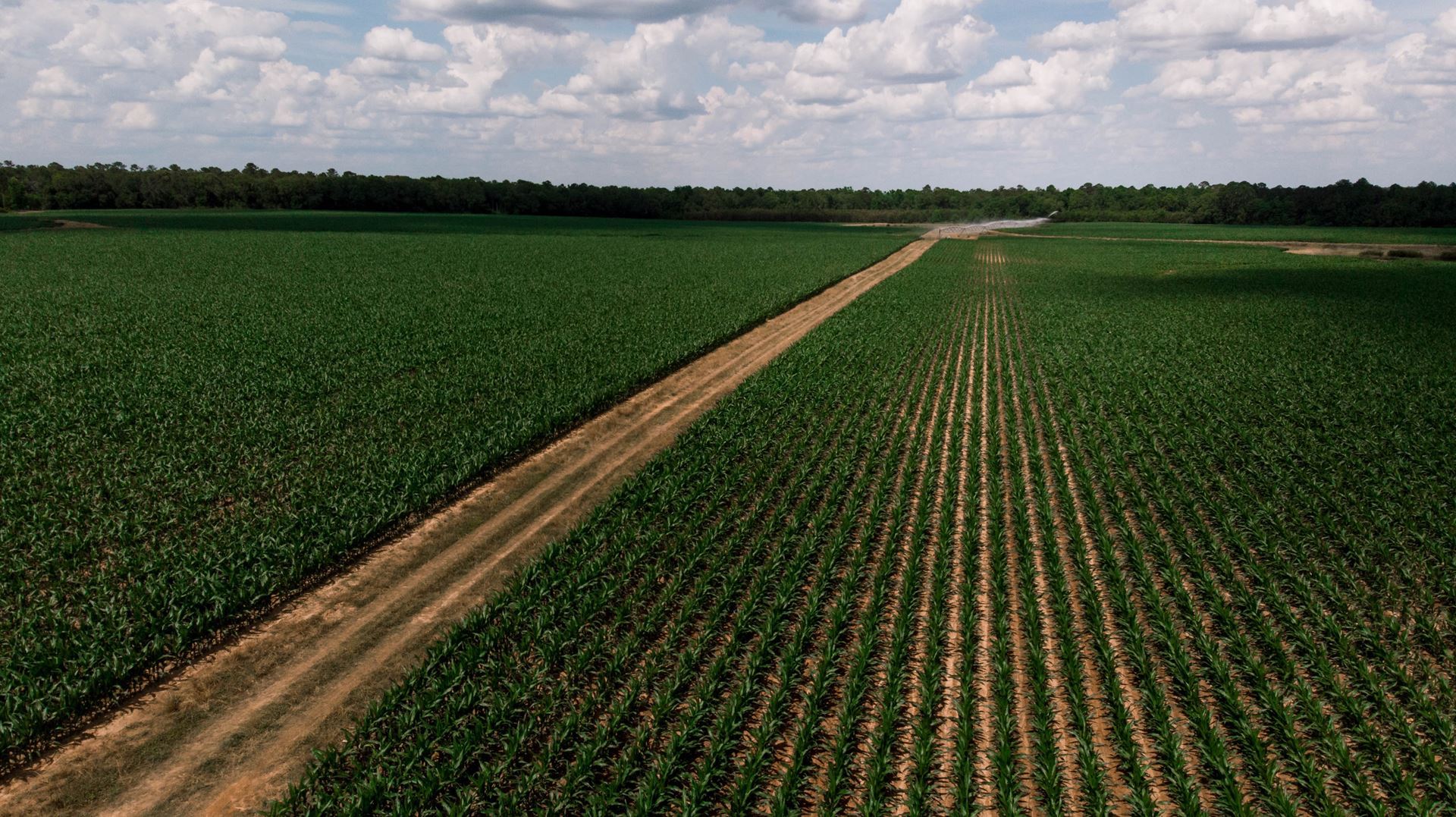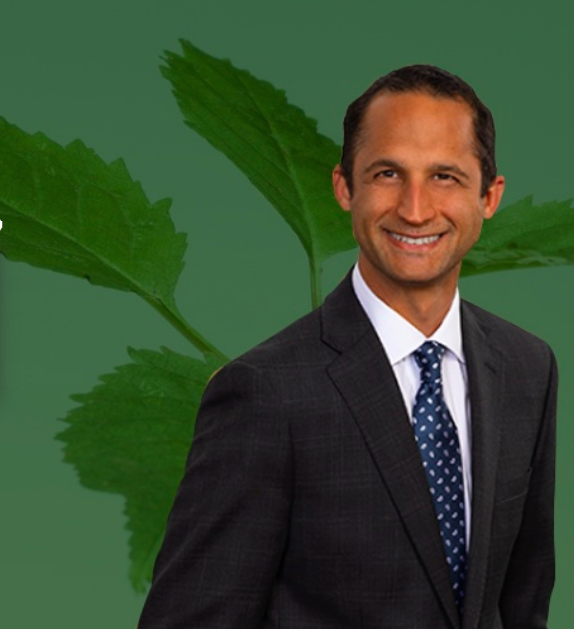
Precision agriculture has emerged as a technology promising to make agriculture more sustainable, both environmentally and economically. It is the technology of giving “just enough”— enough water, enough fertilizer, and enough pesticide to help crops thrive, but not so much as to needlessly guzzle natural resources and spit out pollutants. In the long run, this technology conserves both planet and wallet. Despite these long term benefits, the up front cost locks growers into using certain fertilizers. This problem of lock in required the intervention of antitrust enforcement, yet current technological trends could reduce reliance on antitrust enforcement.
Precision technology includes sensors that can see the color green in the ground to determine the ideal amount of fertilizer. Technological advances also allow for increasingly precise machinery: more narrow blades to make incisions into the soil for fertilizer, faster speeds to inject fertilizer, and “closing wheels” to quickly bury the incision.
This is the kind of technology that farmers have relied upon in their pursuit of environmental and economic sustainability. This technology is especially useful for growers who use a particular fertilizer: anhydrous ammonia. To learn why, let's break down this technical term word by word.
Ammonia is a form of nitrogen. Nitrogen makes plants green, and helps plants grow. Yet, ammonia is also a pollutant that kills fish, and in higher concentrations, humans. Ammonia puts us in a Goldilocks predicament. Too little could starve us of vegetables; too much could poison us (and plants). When it comes to ammonia usage, it is critical that we get the quantity right.
Now for that other weird word: anhydrous. Anhydrous means “without water”—as in a gas. Gas is dangerous. We can accidentally inhale gas. Gas can escape if it is not well sealed in the soil by expensive machinery like precision agriculture. But gas is popular because it is the cheapest form of nitrogen.
Traditionally, growers using the gas “knifed” it deep into the ground to prevent its escape. Yet, the deeper the injection of the gas, the more disturbance to the soil. Soil disturbance leads to soil erosion. Soil disruption also repels wildlife. Efforts to avoid soil disruption have been referred to as “no till” or “low till” farming. Despite the conservation benefits of minimizing soil erosion and preserving wildlife, no till farming has a historical environmental price tag: the heavier use of pesticides.
Newer precision agriculture technology promises to improve no till farming by minimizing pesticide use. Compared to traditional knifing, new precision agriculture machines inject less anhydrous ammonia and at shallower depths. But precision agriculture equipment is expensive. Growers consider expense the greatest challenge for growers using this technology.
Older knifing equipment similarly represents a major investment for growers, so much so that growers using the technology have felt that they were locked in to the gas fertilizer. Even when the gas fertilizer gets expensive, growers are reluctant to abandon expensive equipment.
The lock-in problem prompted the Federal Trade Commission (FTC) to block the acquisition of CF Industries Holdings by Agrium. In 2009, these two companies were the only major suppliers of anhydrous ammonia in the Pacific Northwest, and represented two of the three “significant suppliers” of anhydrous ammonia in Northern Illinois. The FTC found that the two companies, merged as one, would have wielded too much power to set the price of anhydrous ammonia. In 2010, the FTC entered an order requiring Agrium to divest itself of certain assets. Agrium abandoned its bid to acquire CF when CF acquired another company, Terra Industries. Consequently, the FTC withdrew its order against Agrium.
The FTC's action illustrates how antitrust enforcement helps farmers. When multiple fertilizer suppliers compete against one another, they do so on two fronts: price and quality.
A fertilizer supplier cannot raise the price on similar quality supplies because if it does, farmers will go to other suppliers. Suppliers can also distinguish themselves by offering a higher quality substitute. A nitrogen fertilizer supplier may be able to win customers at a higher price by offering a different quality substitute, like safer fertilizer.
This idea of “substitutibility” is important in antitrust law. Substitutes compete with each other. Lucky Charms and Frosted Flakes are substitutable sugar coma inducing cereals. They compete against each other for kids' affections. Lucky Charms and wine are not substitutes. Lucky Charms cannot substitute for wine at a fifty year wedding anniversary. Underage consumption of wine is a criminal offense. Underage consumption of sugar is not. The makers of the two products do not compete with one another.
To return to nitrogen fertilizers, anhydrous ammonia and liquid nitrogen fertilizers are not substitutes because of equipment built exclusively for anhydrous ammonia. A farmer who invested in equipment built exclusively for anhydrous ammonia cannot easily afford the switch to liquid nitrogen. Some machines will not allow the farmer to substitute liquid nitrogen for anhydrous ammonia. Feeding liquid nitrogen instead of anhydrous ammonia to these machines is like feeding wine instead of cereal to a toddler. Don't do it. No substitution allowed.
This means that even though anhydrous ammonia suppliers do not come up with the expensive machinery, they benefit from it. The anhydrous ammonia suppliers do not have to compete with liquid nitrogen because liquid nitrogen is not an option for farmers with expensive precision agriculture equipment.
There are other factors showing that anhydrous ammonia and liquid nitrogen are not substitutes, like the weather. Anhydrous ammonia cannot be effectively applied to soil too wet, or too cold. Weather might mean that the two fertilizers are not substitutable even if machines did not lock in farmers. Such confounding factors illustrate how defining the “boundaries” of a market “is often difficult,” even for government regulators specialized in these issues. We cannot say with high confidence how exactly technology will redefine market boundaries, let alone how antitrust enforcement will respond. But we can still look to the past, and anticipate potential impacts from emerging technologies.
In past presidential administrations, antitrust enforcement intervened to block gas fertilizer mergers because expensive machines made it exceedingly difficult to switch to alternative fertilizers. These machines, now with precision agriculture, remain a major investment. The role of antitrust enforcement agencies like the FTC remains indispensable. The current trend toward less antitrust enforcement places affordable agriculture in peril.
Fortunately, some companies have invented machines that accept all forms of nitrogen fertilizer. In 2011, Dawn introduced the Anhydra Universal Fertilizer Applicator that allows for the application of both anhydrous ammonia, liquid nitrogen, and manure. If this kind of universal technology dominates the market, growers may no longer be financially trapped to the use of anhydrous ammonia. Farmers could enjoy greater economic freedom to experiment with different nitrogen solutions. Precision technology allows farmers to save on the cost of fertilizer, and universal fertilizer applicators empower farmers to switch fertilizers without abandoning expensive equipment. As a result, we may soon arrive at a future where antitrust enforcement becomes less important to fertilizer freedom.
 Jesse Haskins started J. Haskins Law, P.A. to focus on local food communities. Jesse builds partnerships between farmers and communities. Prior to dedicating his practice to local agriculture, Jesse served as assistant attorney general for the State of Florida, assistant general counsel for the Florida Department of Financial Services, and as attorney for a large insurance defense firm. Jesse graduated from the Duke University School of Law in 2009. Jesse is an avid foodie. His favorite ingredient is tahini.
Jesse Haskins started J. Haskins Law, P.A. to focus on local food communities. Jesse builds partnerships between farmers and communities. Prior to dedicating his practice to local agriculture, Jesse served as assistant attorney general for the State of Florida, assistant general counsel for the Florida Department of Financial Services, and as attorney for a large insurance defense firm. Jesse graduated from the Duke University School of Law in 2009. Jesse is an avid foodie. His favorite ingredient is tahini.
Website: www.jhaskinslaw.com
Disclaimer: The views of the writers do not represent the views of the Florida Food Policy Council. We are a forum for the offering and sharing of information and encourage diversity and communication within the food system.